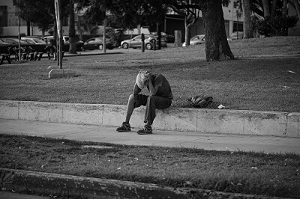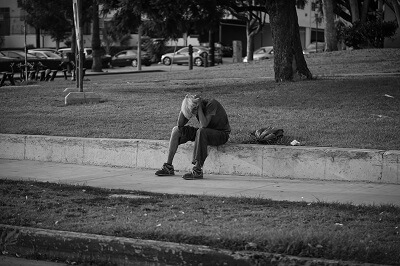When you discover you have hurt someone unintentionally, don’t brush it off. You don’t get to decide if you did hurt them or not. You don’t get to decide if their feelings are justified or not.

Often, the issue can be resolved with a sincere apology. You can share as much as you want or keep it simple.
To apologize to someone you have unintentionally hurt, first emphasize that you did not intend to be hurtful but have taken note of it. Then ask if the person is willing to explain to you what exactly about your behavior offended them.
Don’t blow someone off when they send a message to you that you hurt them. If you do, they will assume it was intentional. That can destroy your relationship with them or cause it to dramatically cool off.
Acknowledge the Situation
What you say, how you say it, and sometimes what you didn’t say or do can hurt someone unintentionally. Being aware of this can help you do better next time.
Acknowledge the situation and what you can do to prevent it in the future. How you approach what the other person shared with you can destroy or salvage your relationship with them. It may turn out that you were both wrong.
Give them the opportunity to explain why they feel the way they do.
It can give you a new perspective on things. I can be an eye-opener for both you and them. It also gives you both a chance to communicate so misunderstandings don’t make things difficult for you in the future.
What to Say:
“I didn’t think about inviting you, I didn’t realize you would be hurt. That wasn’t my intention at all. I didn’t mean to exclude you.”
“Thank you for sharing that with me, I feel terrible that I unintentionally hurt you.”
“I had no idea my actions would cause you to feel that way. I will make sure that doesn’t happen again.”
“It wasn’t my intention to make you feel like that, and I hope you understand that.”
“I appreciate you opening up about it, honestly, it never crossed my mind. I am glad you shared it with me.”
Sincere Apology
You may not agree that the situation was worth them getting upset, but judging their feelings isn’t a good idea. A sincere apology that you didn’t intend to hurt them is important to salvage the relationship.
It goes a long way towards helping to mend the fence. You may be torn up that you hurt them, even though it wasn’t done intentionally.
They need to know you didn’t do so with any underlying intent. When you do so, this can also give them a chance to evaluate their take on the situation. Do they still feel justified? Did they misunderstand something? Were they not clear about something? Perceptions are different for each of us, and that can often cause hurt feelings.
What to Say:
“Please accept my apology, I would never intentionally make you feel that way.”
“I didn’t mean to hurt you; I hope we can move past this?”
“I apologize, it makes me feel awful to know you were upset over this.”
“Please forgive me, I don’t want there to be a problem between us.”
“Thank you for telling me, I will make sure that isn’t something I do in the future.”
Ask Questions
You don’t want to feel uneasy about the situation or be on eggshells around that individual. You may have some questions about the situation you wish to discuss before you can move on.
It may help you both to do so and have some closure with the issue. Try to avoid it turning into an argument or either of you trying to validate your feelings.
Ask questions and listen to what they share with you. Be sensitive when you ask such questions, you don’t want them to feel put on the spot or attacked.
You want them to feel comfortable enough to share information, their feelings, and what is behind why they feel that way. The more you discover, the easier it is for you to communicate with them.
What to Say:
“How can I make it up to you?”
“Can you share with me why you felt that way?”
“I don’t understand why you feel upset, maybe you can enlighten me?”
“I would like us to sit down and talk about it, I have some questions. Can you meet me for coffee at 2 tomorrow?”
“I don’t want this to happen again, maybe you can share your point of view on it with me?”
“I am not understanding why you are upset with me? Can you start at the beginning and go through it with me?”
Clarify Any Misunderstanding
Don’t leave the issue up in the air, give it closure by doing your best to clarify the misunderstanding. Take responsibility for the situation, even if you don’t feel you did anything wrong. It will help the other person move on too.
Don’t assume you are right and don’t assume they are wrong. That mentally won’t resolve anything.
Be open and honest and make sure you feel good about how things end. If they are still deeply hurt, they may need some extra time to process everything. They may need some time before you can get them to talk and open up to you.
Emotions can be tough to work through and verbalize so don’t put them on the spot. Don’t get defensive either as that can cause them to bottle it all up.
What to Say:
“Am I correct you were upset because (insert reason here)? I want to make sure you agree it was a misunderstanding now that I explained my side of it?”
“Thank you for listening to what I had to say about it. I don’t want us to feel uneasy around each other moving forward.”
“I am sorry we had a misunderstanding but thankful we were able to work it out.”
“Are we okay now? If there is something you are still upset about, I would like to work that out.”
“I am glad we could talk about this.”
People feel valued when they share with you and you listen. Give them your full attention when they talk about how you hurt them.
Don’t be in a rush to reply, give them the time they need to share the details with you. Once they are done you can reply back to them. When they know they can say anything and you are listening, it helps them relax.
Try to talk in a quiet place without kids, phones, or where other people can distract you. Those interruptions can ruin the moment when you try to work through how you unintentionally hurt someone.
Give it as much time as it takes for you both to feel better about the outcome and the situation. Don’t rush through it because you have something else to take care of.
What to Say:
“You can always talk to me about how you feel, and I will listen. Thank you for sharing that with me.”
“I am giving you my full attention, what is on your mind?”
“Please talk to me, I didn’t mean to hurt you and would like to hear why you feel that I did.”
“Can we talk later today when there aren’t any distractions or other people around us?”
“I can see your point of view with it now that you shared it with me, and I appreciate you doing so.”
Convey You Value the Relationship
When you hurt someone unintentionally, they may feel that you don’t value them. Make sure you convey a message that you do. If you leave that for them to assume, it can create some distance between you.
When they know they matter to you, they are more likely to forgive the situation and try to move on from it.
Too many relationships are crumbling or unrepairable because things didn’t get discussed or shared. Resentment can build, and if they think you don’t care that you unintentionally hurt them it can be hard for them to care about a solution.
Do all you can to salvage quality relationships, don’t let unintentionally hurting them create a problem that can’t be resolved.
What to Say:
“I respect you as a person and a co-worker and I hope that this won’t get in the way of us being friends or completing projects together.”
“Your friendship means the world to me, and I hope that we will continue to keep it strong despite this recent situation.”
“It would be terrible if this got in the way of our relationship in the future. Please let me know if you continue to feel upset about anything or if something new comes up.”
“I am very thankful to have you in my life, and I hope that will continue for us.”
“I am worried this situation has harmed our relationship, but hopefully, it can actually make it stronger instead.”
“I understand where you are coming from, and I hope in time this will be something you see differently now that we have talked about it.”

Sophie Hammond is a journalist, psychologist, and freelance speechwriter for people in politics and business. She lives on the edge of the Rocky Mountains with her dog and a lifetime supply of books. When she’s not writing, she can be found wandering through nature or journaling at a coffee shop.

